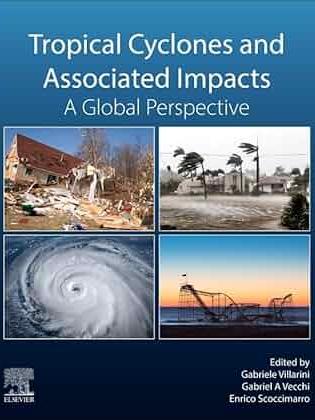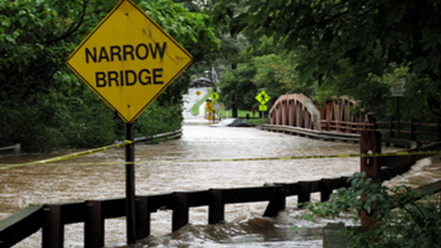
About
Dr. Gabriele Villarini is a Professor in the Department of Civil and Environmental Engineering and at the High Meadows Environmental Institute at Princeton University.
His research interests focus broadly on flood hydrology, extreme events, hydroclimatology, and climate predictions and projections. He has received a number of national and international awards, including the James B. Macelwane Medal by the American Geophysical Union (2016). He is a Fellow of the American Geophysical Union (2016). He has published over 240 peer-reviewed papers, including articles in Nature, Science, Nature Climate Change, and the Proceedings of the National Academy of Sciences. He is the Editor-in-Chief for Advances in Water Resources.
Opportunities
If you are interested in joining my group, please check the available opportunity page for any openings.
Book on hurricanes and their global impacts
Together with Dr. Gabriel Vecchi of the High Meadows Environmental Institute and the Department of Geosciences at Princeton University, and Enrico Scoccimarro of the Centro Euro Mediterraneo sui Cambiamenti Climatici, I have edited the book “Tropical Cyclones and Associated Impacts: A Global Perspective."
As climate change fuels increasingly destructive hurricanes and typhoons worldwide, this book provides essential knowledge and tools for understanding, forecasting, mitigating and responding to these devastating storms across the globe.
The book, published by Elsevier, features contributions from leaders across climate science, disaster response and the energy industry. Together they provide a comprehensive examination of tropical cyclones, including their history, evolution, impacts, and increasing strength due to climate change, which is expected to bring storms of ever-greater intensity over the coming decades.
With particular relevance for decision makers and practitioners in policy, energy, the insurance industry, government agencies, risk management, disaster preparedness and academia, this book also offers contextualized knowledge to anyone looking for the latest expertise on this evolving topic, which will be of even greater importance in coming years as these storms continue to intensify.


Research Interests
My core research interests revolve around process-driven flood frequency and projections. In the literature, most of the studies on flood frequency analyses treat flood extremes as coming from a single population. However, the approach I have been pursuing recognizes that not all flood events are coming from the same population, but rather that those events were caused by different flood-generating mechanisms, each one of them expected to control different parts of the flood peak distribution.
In addition to the novelty in process attribution and statistical methods, this process-driven flood frequency method represents a viable way to investigate how flooding is projected to change in a warmer climate: we can use climate model outputs to examine how the drivers of these major flood agents are projected to change and then use this information to infer how flood frequencies are bound to change. This is because we cannot blindly extrapolate past trends or use the lack of detected trends in the historical records as evidence for lack of changes in the future.
